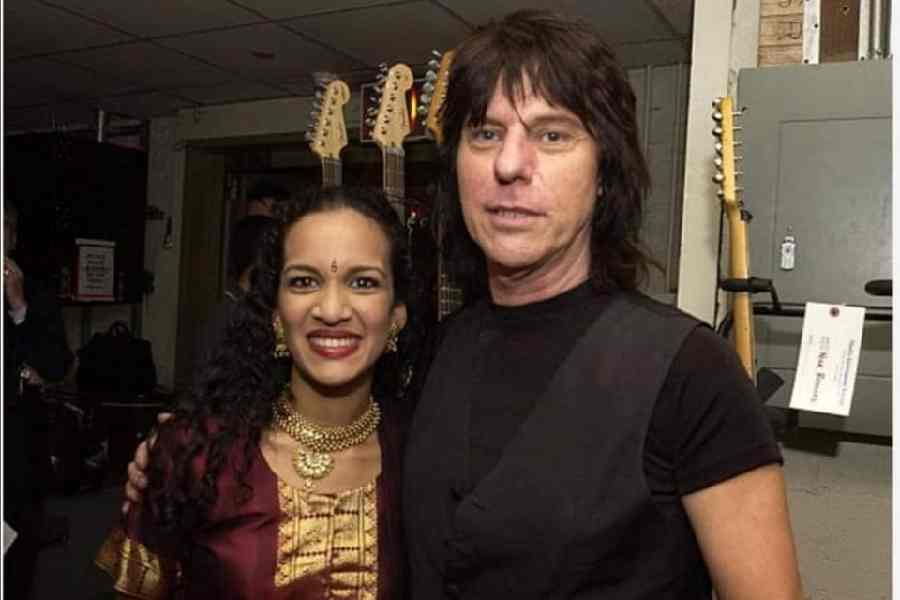Just how popular is Neeraj Chopra? At 1am with the City of Light finally getting ready to sleep, I walk into a restaurant near the Croix De Chavaux metro station at Montreuil, an eastern suburb of Paris, which is on the verge of closing for the day. I’m famished so I try my luck with the manager. “From India?” he asks. I nod in affirmation. “Neeraj Chopra’s country! Wait. Let us see what can be done.” Within minutes, a juicy burger is served. “Saw Neeraj Chopra, the javelin...” he says in what they say in Paris ‘School English’.
Neeraj enjoys a huge fan following after his Tokyo gold medal. He has 9.6 million followers on Instagram. At the Stade de France on qualification day (August 6), Neeraj drew the loudest cheers. Two days later too, every Neeraj move was greeted with loud cheers. Arshad Nadeem of Pakistan though, with that Olympic record-creating throw of 92.97 metres, stole the thunder. It earned him the gold medal, and worldwide fame and gave Pakistanis a huge reason to cheer.
Starry tales
Reza Hussain, 35, whose roots are in the Punjab province of Pakistan, came to Paris from Birmingham 15 years ago. He was over the moon. “Best day of my life,” he gushed. “I saw it on television and could not believe my eyes. We have a gold medal winner,” added Hussain, a fan of Shah Rukh Khan, like many others among the sizeable Pakistani population at Saint-Denis where the celebration went on all night long.
Talking about Indian film stars, Rajan Gupta, who owns the upmarket Kirane India restaurant at Porte Maillot, is a treasure trove of anecdotes. “Whoever comes to Paris will not miss the chance to taste our food,” Gupta, who migrated to Paris from Bombay some 45 years ago, said.
He had many tales to tell.
A celebrated character actor who thought the dinner would be on the house only to be curtly told that he would have to pay up. A well-known compere who lost all his belongings while partying in Paris. The all-night binge of two sisters, in the early days of the new millennium, with the son of a former top actor. A leading star of the present generation who prefers tap water to mineral water to save Euros. “I have seen everything,” said Gupta.
Song bond
Hindi film songs, like in many parts of the globe, are popular in Paris too. Kevine from Congo, who drives a Paris cab, has an Indian friend and is hooked on Hindi songs.
Tere Vaste from the Vicky Kaushal-Sara Ali Khan film Zara Hatke Zara Bachke is on his playlist. From AR Rahman’s Dil Se.. to Disco Station from Haathkadi... Kevin has everything. “Like Hindi songs. Keep (sic) me driving,” he says navigating a sharp turn, lowering the volume of the system.
A kid of hush
Silence is a way of life in Paris. On a train journey to Châteauroux to catch Manu Bhaker win the first of her two bronze medals, one was gently reminded to bring down the notification volume of the phone. Most of the passengers were either reading or plugged into their Airpods.
But the arenas for the Olympic Games were noisy. Reminded one of the decibel levels back home in India. Cocking a snook at Covid — Noah Lyles ran the 200 metres in between the men’s javelin final even after testing positive for the virus — the stadiums were full to the brim. Before every match, there was this thumping sound.
Brigadier’s thump
A new ritual of banging a stick on the ground at the start of each event was added at the Games. A long, wooden staff that went thump-thump-thump. Slowly. The stick is called a brigadier, and its banging was a mini form of an opening ceremony at the start of each event. The wooden staff is struck against the ground three times to silence the crowd and celebrate the beginning of the competition.
Before the evening session of the athletics events on August 8, Carl Lewis had the honour to pound the floor with the brigadier. The three blows thundered through the stadium. The crowd waited in silence. Upon its conclusion, a deafening applause. The ritual celebrated France’s rich theatrical culture. The three hits against the ground are usually used in the theatre ahead of a performance before the curtains come up at the start of a show.











